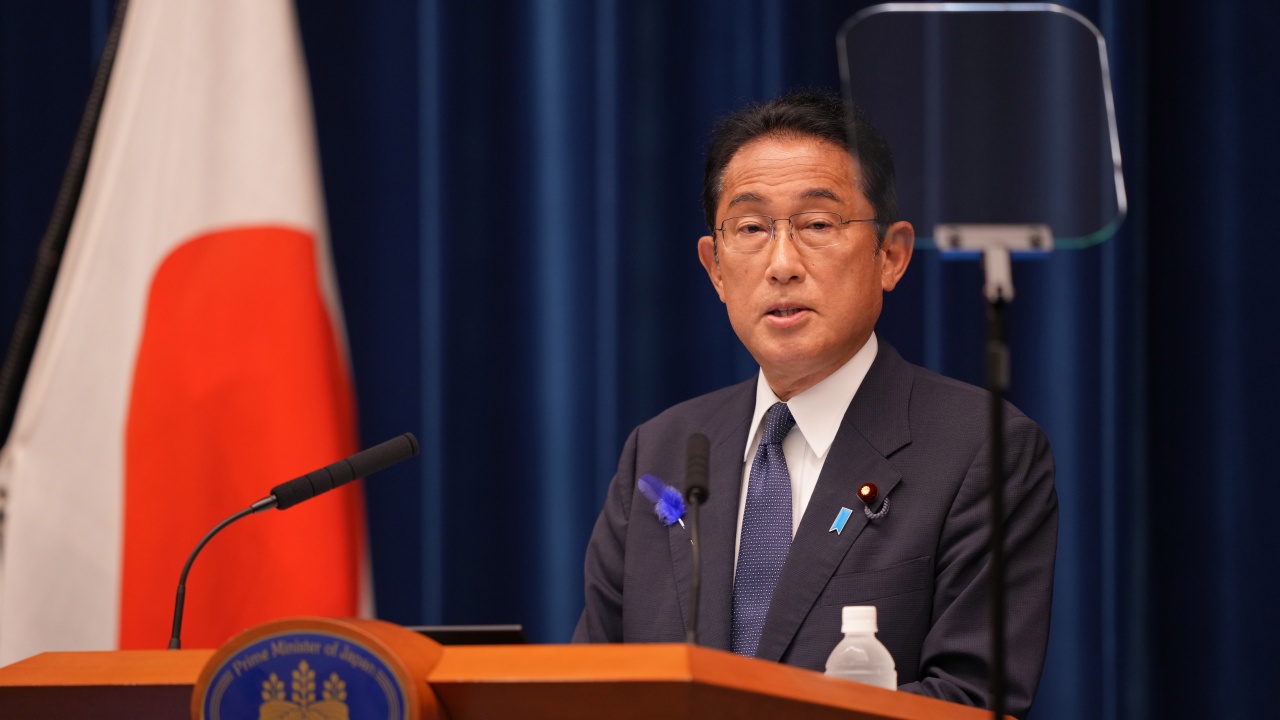Japanese Prime Minister Fumio Kishida reshuffled his government today in an apparent attempt to distance his administration from the conservative Unification Church. Her connections to the assassination of former Japanese Prime Minister Shinzo Abe and to the top leadership of the ruling party caused a big drop in approval for the cabinet, the Associated Press reported, quoted by BTA.
These are the second government changes in the 10 months since Kishida took office, and the first since his party's election victory in July.
It was believed that this recent victory would guarantee the rulers stability until at least 2025. But in the meantime, the shocking assassination of Abe on July 8 happened and this event increased uncertainty, while in parallel, confidence in the government decreased.
Kishida told reporters today that there will be a thorough investigation of ministerial candidates and executive cadres in the Liberal Democratic Party to check whether they have links to the "Unification Church".
He added that he had ordered his ministers and other senior officials to explain their possible ties to this church so that the government could do its political and administrative work in such a way that the people would retain their trust in it.
At a meeting of the ruling party today, Kishida urged its lawmakers to unite and tackle the most pressing challenges.
Kishida said the main reason for the cabinet changes was to "overcome the biggest post-war crises" in the country, referring to the Covid pandemic, inflation, rising tensions between China and self-ruled Taiwan and Russia's invasion of Ukraine.
A poll by local broadcaster NHK showed support for Kishida's cabinet had fallen from 59% to 46%.
According to most respondents, the politicians did not explain clearly enough their connections with the "Unification Church".
Kishida's plans to hold a state funeral for Shinzo Abe have also divided the public over Abe's ultraconservative positions on national security and wartime history.
Kishida's critics saw the state funeral he organized for Abe as an attempt by the government to magnify the political legacy of its predecessor.
With the changes made, the chief secretary of the Japanese government, Hirokazu Matsuno, retains his post, and today it was he who announced the changed composition of the cabinet.
In it, five ministers remain in their posts, five others who were removed in previous changes are returned to the government, and seven ministers who admitted their ties to the aforementioned church are relieved of their posts.
Nine ministers hold ministerial positions for the first time.
Among the seven suspended ministers is Nobuo Kishi, the younger brother of Shinzo Abe, who headed the defense ministry.
He admitted that followers of the "Unification Church" had volunteered in his election campaign in the past.
Yasukazu Hamada was now appointed in his place.
Taro Kono, who was in charge of the vaccination campaign against the coronavirus and is a former minister of foreign affairs and defense, has now been appointed minister of digital transformation.
Foreign Minister Yoshimasa Hayashi, Minister in charge of Economic and Fiscal Policy Daishiro Yamagiwa, Transport Minister Tetsuo Saito and Finance Minister Shunichi Suzuki kept their posts.
Economy, Trade and Industry Minister Koichi Hagiuda, who also appeared to have ties to the aforementioned church, was moved to head the party's policy analysis committee and was replaced by Yasutoshi Nishimura, a former economy minister.
Katsunobu Kato was appointed as health minister for the third time, and he is now tasked with the covid measures.
Japan's PM meets Pelosi, calls Chinese exercises 'tough problem'
Despite previous criticism that Japanese politics is dominated by men, now with the changes the majority of ministers are mainly men over 60 and only two are women - Abe's ultra-conservative confidant Sanae Takaichi, Minister of Economic Security, and Keiko Nagaoka, who replaced Education Minister Shinsuke Suematsu, who admitted his ties to the "Unification Church".
The church was founded in Seoul in 1954, a year after the end of the Korean War.
It was founded by the now-deceased Pastor Sun Myung-moon, who went to Japan in the 1960s, where Shinzo Abe's grandfather, former Prime Minister Nobusuke Kishi, supported his anti-communist and family-oriented value system.
Since the 1980s, the church has been accused of inducing its followers to make large donations to it, but it has denied the allegations.
Japan
Fumio Kishida
